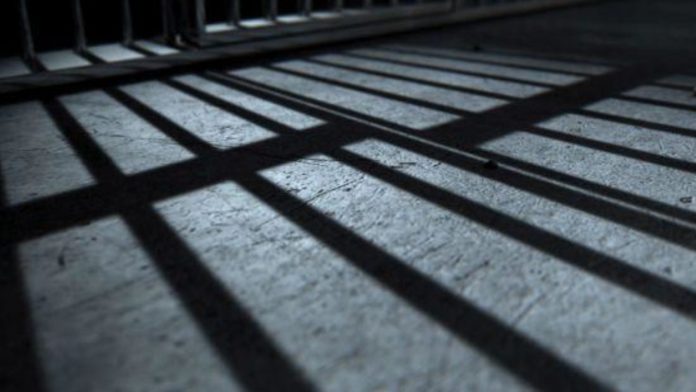This article is written by Shristi Roongta from Amity Law School, Kolkata. The article details the ways and procedures to be followed if someone gets arrested in a foreign country and also how to avoid going to foreign jails.
Table of Contents
Introduction
Every person should be treated as human beings irrespective of the fact that he is a criminal. In India, the legal system is based on the concept, “innocent until proven guilty”. Every Indian knows this and the laws prevailing in the country. Likewise, people around the world know the laws of their countries and the punishments. But what if a person travels to another country and he does not know the laws. Suppose Mr. A went to XYZ country and he spits on the roadside without knowing the fact that this could lead him to prison and he gets arrested. Now, what can he do? What are the procedures he needs to follow? or else what should he not do in a foreign country to avoid such problems? This article details the do’s and don’ts in any foreign country so that a person can avoid foreign jails and if he gets arrested what all remedies are available to him.
What is arrest
In a general sense, arrest means to take a person in custody, usually by a police officer. The police officer takes the person in custody and does not allow him to leave. After the arrest, many people are being taken to jails but arrest can be said to happen much earlier. For example, a police officer stopped a person and started questioning him about the robbery at the place where that person happened to be seen. The police officer does not allow him to leave, this is also an arrest.
How to avoid foreign jails
Travelling abroad can ruin your excitement in case you do not know what things are not allowed in that country. Make sure while travelling you search about the country and the laws of that country.
What not to do in any foreign country
Transporting Drugs
Recently in China, a British man was executed after he was suspected of smuggling drugs. Although the facts of the case are not known clearly, the Chinese authorities gave the sentence. Therefore there are two things you can be certain of in this world: don’t carry illegal substances across borders and it is the stupidest thing to do in Asia. The western countries have severe consequences for such crimes but Southeast Asia and the Middle East are the regions where the punishments are the strictest in the world. No other country is as strict as them. In Singapore, the punishment for as little as 3 grams of morphine or 15 gram of cannabis receives an automatic death penalty by hanging.
Trespassing
If a person has a habit of peeping or trespassing into anyone’s home then this could lead them to death. In most US states, the landowners have the right to injure, shoot or even kill the people who violate their property without any legal restraint.
Not carrying ID
In Japan, if you do not carry your ID card they would lock you up. If you happen to walk past a police officer who feels that it is their duty to keep its citizens safe from dangerous foreigners then they can ask you for your ID. If you fail to provide then you may find yourself behind the bars for 23 days with absolutely no contact from the outside world. There would be 3 days of interrogation which can extend twice by 10 days upon the approval of the judge.
Crossing the road on your own will
In India, it is very normal for people to cross the road while the traffic lights are red. However, this rule is strictly followed in America and Middle East countries. Whether people are driving or crossing the roads they are not allowed to cross the road at their own will. People in these countries have been fined for these little things.
Using abusive language
Using any kind of abusive language can take you behind the bars in foreign countries especially if you are travelling to Australia. Australia is very strict about the use of abusive language and the authorities could fine you for this.
Smoking in public places
In some countries, smoking a cigarette in public places such as restaurants, bus stops, playgrounds, etc is illegal. If you are found to be smoking in those areas then you will be fined heavily and even can lead you to jail.
Never do any unclean and unhealthy things
It is common in India to spit on the roads but this habit can lead you to jail. Since in many countries, uncleanliness and unhealthy habits are intolerable and that can lead a person behind the bars. It is important to know this thing before travelling anywhere abroad.
What to do if arrested
Know your rights
If someone gets arrested in a foreign country, the first thing they should do is to know their rights. A person should not panic, instead, they should work sensibly and follow the procedure. Every person should know their basic rights such as the reason for the arrest, to hire an advocate, to contact someone from the family or friends, etc. The arrest of anyone depends upon the laws of the country they have been arrested in. The foremost step is to get the information about those right:
- In case you do not know your rights, you can ask the arresting officer to explain to you the rights in a language you understand if you do not know their language.
- Ask questions whenever necessary to clarify your rights with the arresting officer or the lawyer when you speak to him or her or them.
- You can ask the officer, do I have the right to hire a lawyer? Or to call anyone from the family or friends, if they stay in that country or in your home country. Ask if you have the right to hire an interpreter?
The consultants or the embassy must be notified about the arrest. The following points should be clarified:
- Has the embassy been notified about the arrest?
- In case it is not then you can ask, when will the embassy be notified?
- Can you contact the embassy?
Share important details with family or friends
If contacting the family or friends is allowed then you must inform them of all the important details including:
- The date and place of arrest;
- The place of detention;
- The reason for the arrest and the charges;
- The name of the officers, if possible; and
- If you have a lawyer then his/her/their number and details.
In some countries, there is a possibility that you may not be allowed to share this information with your family members. In this case, you can pass these details on to someone you can trust, who could forward those to your family.
Hire a lawyer
The most important thing to do right after the arrest is to see a lawyer to obtain legal advice. It’s better to have a local lawyer who knows your language too and if not then he can explain your situation to the officers or the concerned person. In case you don’t find a lawyer, ask your family or friends to contact any good lawyer or recommend to you:
- After hiring a lawyer, make the most of the time with the lawyer and ask him/her all the relevant questions.
- Give all the necessary information and whatever information can make your case stronger.
- Make sure you give any important detail or evidence or aware your lawyer to preserve it before it gets lost or tampered with. For example, the flight tickets or the CCTV footage of the hotel you are residing in.
Hire an interpreter
Being in a foreign country, hiring an interpreter is one of the most important things to do. Hiring an interpreter for your work becomes easier as you can explain all your points and information to the officer or the lawyer. Don’t just rely on your knowledge of a foreign language unless you are fluent enough to make the officers understand the scenario. Ask the arresting officers to provide you with an interpreter. If you have a family or friend residing in that country, contact them immediately and ask them to help you as an interpreter.
What information should be shared with police
- First of all, try to get the reason for your arrest, and then only you provide any information.
- Be very careful what information you share with the police officers. In some countries, whatever information you provide can be used against you in criminal proceedings. Therefore it is very important to take care while giving out any information.
- It is important to be aware that in some countries the police are not allowed to answer your questions.
Talk to your embassy
One of the priorities of the embassy is to help the arrested or detained citizens of their country. Although they would not be able to help you out of the custody of the arresting officer or could provide you legal advice. But they can give you a list of local lawyers and can contact your family or friends. The staff of the embassy can also ensure that your rights are being upheld and that you are treated well.
Do not sign any document
- It is advisable not to sign blank papers at all.
- Any document which is written in a language you don’t know or do not understand.
- Ask for a translation of the documents you are requested to sign.
- In some countries, foreign detainees are not granted a right to receive documents in a language they understand. Therefore if you are in a country that does not provide a translated copy of the document then you are left with no option but to sign the document. In that case, you can do the following:
- Ensure that there is a professional and independent interpreter whom you can trust to translate the document verbally before you sign it.
- You can write beside your signature that you do not understand the contents of the document.
- Make sure when you sign the document it is clear that you are not happy and do not feel and suspect this document is an accurate transcript of your comments.
Conclusion
It is very important to know all the above-mentioned points before travelling to any foreign country. It may happen that some things are legal in some countries while they are illegal or banned in others. If a person does not know what they should not do in that particular country then it will lead them behind the bars. If a person gets arrested, the foremost thing to do is not to panic and handle the situation sensibly. It is concluded that every person should know the basic rights available to them in case of arrest even in a foreign country since these rights are common in every country.
References
- https://www.fairtrials.org/wp-content/uploads/Arrested-in-another-country-UK.pdf
- https://www.google.co.in/amp/s/vagabondish.com/travel-activities-trouble-abroad/amp/
- https://travellingbuzz.com/10-things-never-travelling-abroad/
- http://www.quadbloggers.com/general/things-that-are-allowed-in-the-indian-subcontinentbut-could-land-you-in-trouble-abroad/
LawSikho has created a telegram group for exchanging legal knowledge, referrals and various opportunities. You can click on this link and join:
 Serato DJ Crack 2025Serato DJ PRO Crack
Serato DJ Crack 2025Serato DJ PRO Crack









 Allow notifications
Allow notifications


